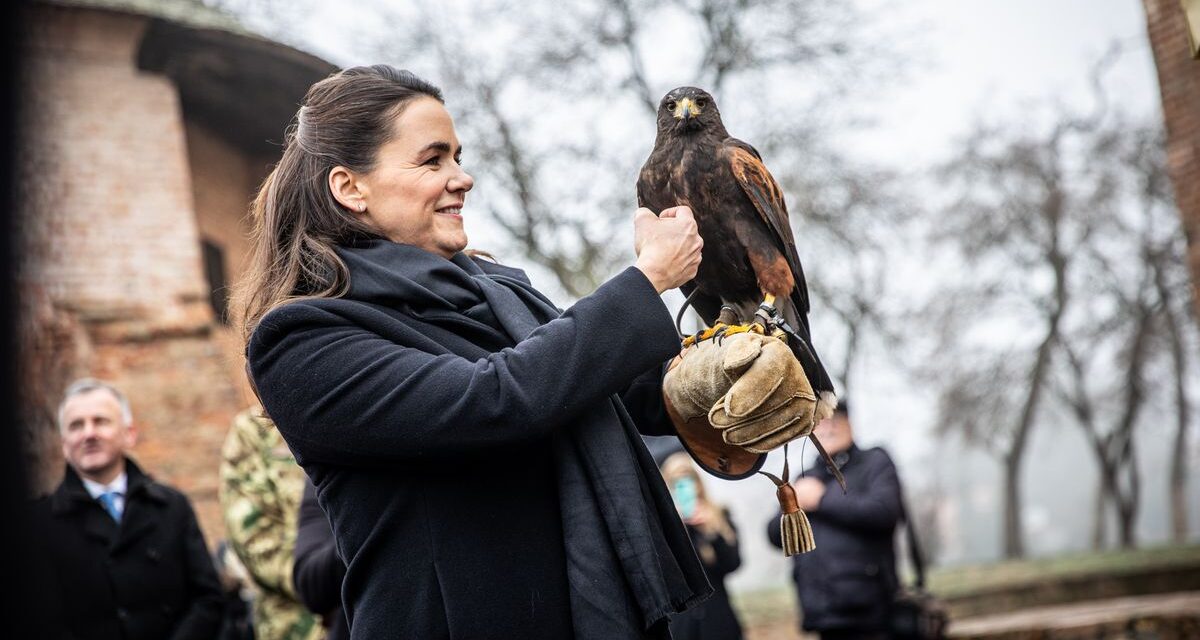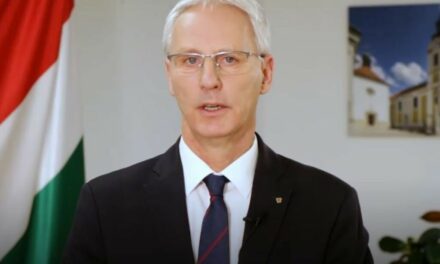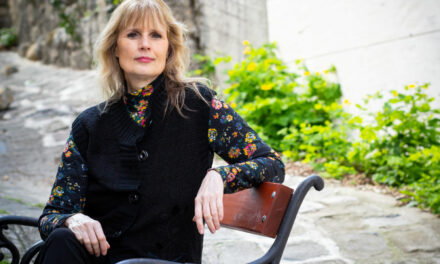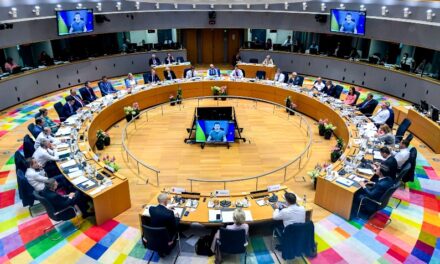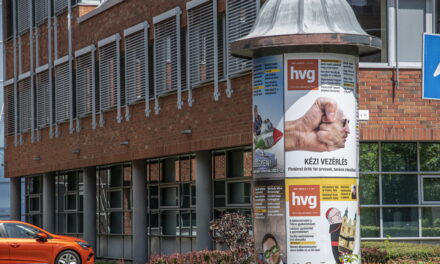I hope I'm not the only one who felt this way! – evaluated the three days at the end of January that the President of the Republic spent in Békés county. Interview.
During the conversation, it was also discussed how young people can be motivated to settle in the region, the war in Ukraine and this year's elections, and Katalin Novák also touched on why she declared 2024 the year of movement.
On what basis did you choose your destinations in Békés, have you visited the area before? We ask this also in light of the fact that he grew up in the "neighbor", Szeged.
Really, it's a bit like coming home to you. I was born in Szeged, I grew up in a similar region, I feel at home here. Many people don't even know how much beauty this lowland world hides. I admit, as a child I didn't look at it with the same eyes as I do now. When visiting the county, unfortunately, there is not enough time for everything you would like to spend time on. At the same time, my goal was to get to as many settlements as possible - both villages and cities - to meet as many people as possible and to learn as much as possible about everyday life in Békés. I visited Gyula and Békéscsaba, but I also visited Okány, Szarvas, Orosháza, Mezőhegyes, and I couldn't miss the world of farms either.
At the beginning of my presidency, I formulated five areas that I would focus on: the family, young talents, women, people who deserve special attention and the lovable Hungary.
I also paid special attention to these here in Békés. I met Békés "little virtuosos", family entrepreneurs, people who face difficulties on a daily basis, but I also didn't want to miss the pride of the county, so I visited the museum of Mihály Munkácsy, who grew up here, and then I was able to meet contemporary artists in Csabagyöngye. The peaceful meetings gave me a lot, and I trust that I was not the only one who felt this way! In Szeged, I'm used to walking everywhere. I got used to that in Budapest, so now I was also happy that the locations were often within walking distance of each other here as well. In addition, the program began in a very meaningful way, since right after my arrival I was able to watch the performance Three Tall Women in the castle theater together with the people from Gyula.
Emigration has been significant in Békés in recent decades. What advice could you give to the young people living here, why they should stay or return after their studies and experience?
Life in Békés County was never easy. People living in Viharsarok always had to fight for everyday life. The latest census also shows that the population of Békés has decreased at a much higher rate than the national average. This is not only because fewer children are born - Géza Féja has already written about the tradition of "one-handed" in Békés - but also because many people have migrated to other parts of the country. I have also experienced that the people of Békés are hard-working, struggling people. It is good that more and more investments are coming to the county, such as the Airbus factory, related businesses, food processing or news technology companies, and the list could be continued. I visited the Szarvas Mozzarella factory, which is a good example of how a Hungarian family business can be successful and nationally known, while providing a living for 120 families.
In order for the return to be attractive to young people, they must feel that they have a future in Békés as well.
Infrastructure needs to be improved. The construction of the M44 expressway contributes to Békés becoming more involved in the blood circulation of the country. The way of life that Békés offers to a young person starting a family can be attractive to many. It's good to live here. If we manage to make this good life a little easier, then even more people will decide to return home or even move here.
In your opinion, can you benefit from the border situation of our region in the future? I am also thinking here that many people are waiting for Romania to join Schengen...
Békés is also in an interesting position historically. There are few more illustrative examples of the tragedy of the mutilation of the country than the fact that Békés, Szarvas, happened to be the center of historical Hungary, and today it is a border county, so to speak, a periphery, with all its advantages and disadvantages. Hungary strongly supports Romania's Schengen accession, and perhaps the people of Bécs are looking forward to it the most. It will not only make communication between Hungarians and Hungarians on both sides of the border easier, but will also give impetus to the economic cooperation that already exists along the border.
Hungary has a fundamental interest in maintaining good relations with its neighbors, if only because of the Hungarian communities living there.
There has not been a head of state meeting between Hungary and Romania for more than ten years, which is why I am glad that President Johannis, reciprocating my official visit to Bucharest, visited Budapest last year. I also said then that Hungary supports Romania's Schengen accession.
We are facing an election year. Domestic municipal and EU votes, America elects a president. What can these bring with them in domestic and world politics?
The consequences of this year's elections will be felt by many people in Hungary as well: we are also indifferent to who will be the American president, who will lead the European institutions, what balance of power will develop in the European Parliament, what will be the result of the Austrian election. And in local government elections, the Hungarian people can decide which leaders should stand at the head of the local communities. There is now an opportunity to confirm or override the decisions they made five years ago. We live in a turbulent world: war in our neighborhood, fighting in Israel, waves of illegal migration, a changing world order, where the previous points of reference seem to be called into question. Depending on who eventually moves into the White House, the course of the world may change, the prospects for the war in Ukraine may change, but the intensity and quality of Hungarian-American relations may also change. The United States is our important ally, and within the framework of NATO, it also plays a major role in guaranteeing Hungary's security.
Hungary is a good ally, it fulfills its obligations, but if we expect respect and readiness for mutual understanding from anyone, it is precisely from our allies.
In a federal system, sovereign parties face each other, not subordinates. The other big election of the year, the European Parliament election, is also partly about this. We also have to decide how Hungarian interests should appear in European decision-making, which seems distant, but can still influence our everyday lives. In addition to world political processes, it does not matter who controls our settlements. During county visits, I meet many capable and dedicated local and county leaders, fortunately more and more female leaders as well.
In connection with the war in Ukraine, he repeatedly urged peace. Is there a chance for this in 2024?
The war in our neighborhood has been going on for almost two years. By now, we seem to have gotten used to this state of affairs, to the tragic news we receive on a daily basis. The reality of war is the present. No one knows the exact numbers, but tens of thousands died, and the number of Hungarian victims is also increasing. Men are also constantly enlisted in Transcarpathia. Mothers, wives, children mourn their dead.
And the consequences of the war go beyond the borders of Ukraine, they also affect us, the Hungarians living in Hungary.
Until now, it has been clear to us that only one correct endeavor is possible, and that is the pursuit of peace, in every possible way. Today, more and more people think this. The Ukrainian president has also started to develop a peace formula, and we are also involved in this. But I also hear in international forums and from foreign politicians that now is the time for peace negotiations. It cannot be said in January whether 2024 will be the year of the turning point for peace, but I am confident that it will be, and that is why we must work. We have to avoid world war, and it's not that easy.
For years, you have firmly stood up for traditional family values. Will this play an important role in your future work?
If no children are born, the country has no future. If we ask Hungarians what is most important in life, the majority will mention family. Hungarian people are therefore inherently family-friendly. My goal was to make Hungary a family-friendly country. The family-friendly turn has already begun, and it has also appeared in the government's approach, measures, tax policy, and developments.
The goal is to make it easier to start a family, so that the birth of the desired children does not face financial obstacles, and to make the situation of those raising children easier. We have achieved many results, but there is still work to be done.
As President of the Republic, I also pay particular attention to families, and I work with my resources to achieve the demographic turnaround. The problem of empty cradles, the challenge of a declining population that also impairs our competitiveness, affects the entire developed world. I draw attention to this everywhere, and fortunately there are many people who want to act upon hearing this.
More than once, he also hinted at the need for more women in public life. Do women see things differently than men, or may I ask, are they easier to resolve conflicts?
Women and men are equal in their rights, they should be equal, but they are not the same. We women also work to smooth out problems and conflicts at home. As mothers, it is much harder for us when, for example, our children quarrel with each other. If only there were more of this empathy in public life in this country and in the wider world with a greater presence of women, it could result in a different kind of world. This is why more women are needed in public life.
Anyone who tracks your activity knows that it is important for you to be encouraged to move. In his New Year's speech, he invited all Hungarians, regardless of age, to run, hike, swim, bike, play soccer, and exercise. Why did you declare 2024 the year of movement?
When I go to visit a county, I not only want to visit that county, but also carry out the duties of the head of state from there. For the sake of comprehensibility, we named it Sándor's Palace, which was housed in Gyula Castle in Békés. Here I received the Prime Minister of Moldova, here the Chief of the General Staff of the Armed Forces gave a report, and in the Gyula castle I signed the presidential decree declaring 2024 the year of movement. It's good to move and do sports, you have to do sports. This year we have plenty of big sporting events. There will be the Olympics, there will be the European football championship, and I could list more.
I am sure that we will hear the Hungarian national anthem many times this year. But let's not just support the Hungarian athletes, let's also move!
The Hungarian sports nation should not only be because we win many gold medals, but also because more and more Hungarians feel the importance of regular exercise. I would like to encourage all Hungarians, all peaceful people, to join our movement! I also strive to make exercise a part of my everyday life. Sometimes it's hard to fit it into my time, but if it's really important, I'll do it. We also organize a sports program during county visits. In Székesfehérvár I could exercise with hockey players, in Kaposvár with handball players, in Kecskemét with basketball players, and in Gyula I went to train at the Atlas Fitness Club, which is considered a cult place. It was nice to lift weights with the locals. I would like to draw attention not only to the great local athletes and teams, but also to how many opportunities there are in each settlement. And finally, there is running, which requires almost only the intention, and even hiking. István, my husband, and I are undeterred on the Blue Tour, we want to complete it in five years.
Your New Year's speech has already been discussed, and I will conclude by asking: what would you be satisfied with on December 31 this year? How would you like to look back on this year?
If 2024 could be the year of peace, and if we could live easier, more beautiful, and in greater harmony in Hungary.
CLOSED
Featured image: The President of the Republic also tried falconry at Gyula Castle. Photo: Ádám Bencsik/BEOL

